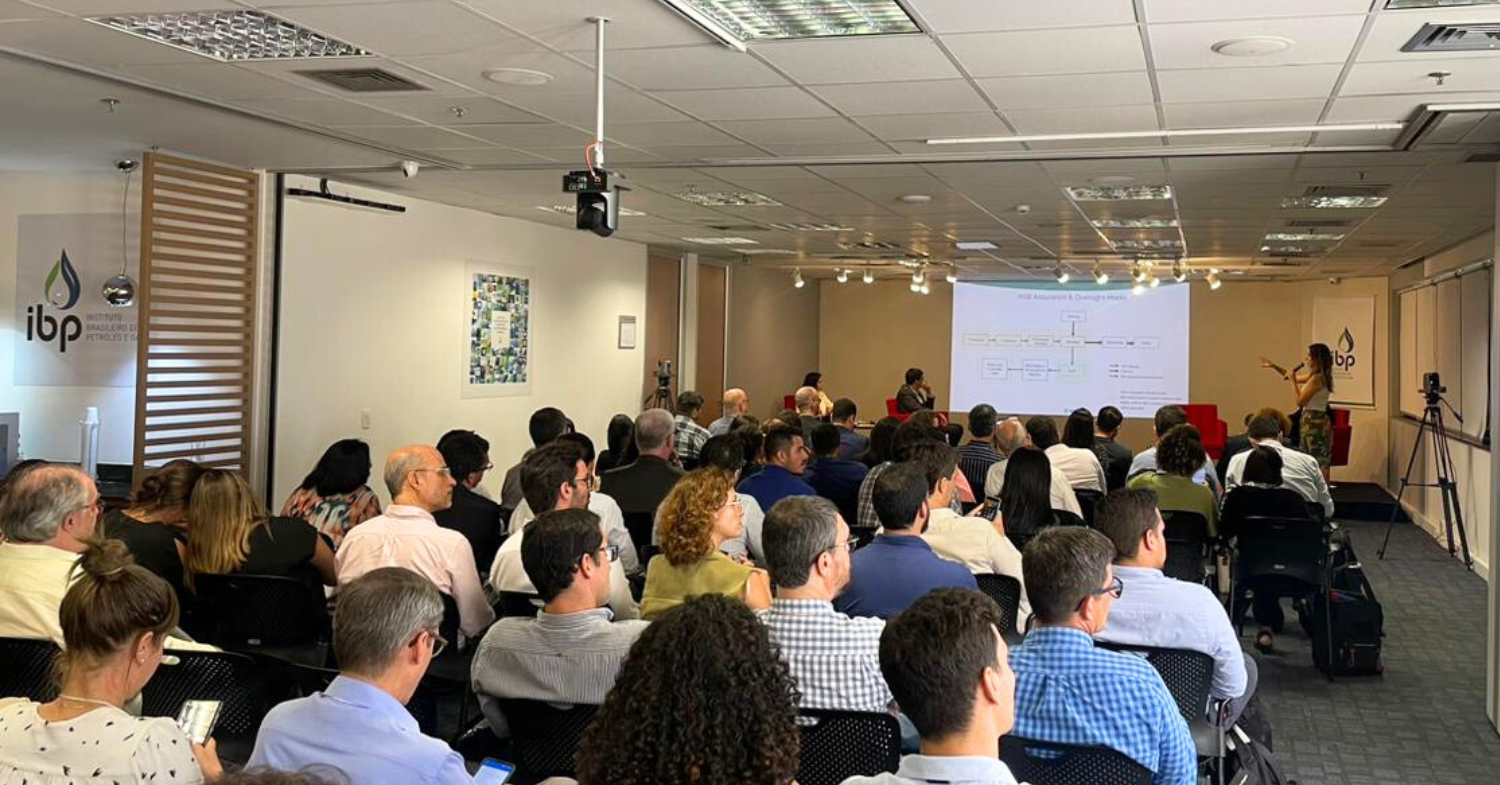IBP debate futuro do mercado de combustível sustentável de aviação

O Brasil tem potencial para produzir até 9 bilhões de litros por ano de combustível de aviação sustentável (SAF, na sigla em inglês), a partir dos resíduos de matérias-primas disponíveis no país, segundo especialistas do setor. O volume é suficiente para atender o consumo anual do mercado nacional de aviação que gira em torno de 6 bilhões de litros.
Para discutir como viabilizar essa produção, construir um arcabouço regulatório eficiente e os demais desafios para a implantação do mercado de combustível sustentável de aviação no país, em linha com os anseios da descarbonização da economia, o Instituto Brasileiro de Petróleo e Gás (IBP) realizou o Workshop “Descarbonização da Indústria de Aviação”, na quarta-feira (21/02), no Rio de Janeiro. Representantes do Governo, certificadores, produtores, distribuidores de combustíveis e empresas aéreas participaram do encontro.
A diretora executiva de Downstream do IBP, Valéria Lima, destacou a importância de discutir neste momento com todos os atores do segmento a melhor forma de fornecer o SAF para a sociedade brasileira. “Essa discussão tem como pano de fundo o PL Combustível do Futuro e é importante debater nesse âmbito os aspectos de produção e de regulação do SAF. Para a introdução deste biocombustível no setor de aviação, precisamos entender como vamos desenvolver o mercado e certificar a produção, em alinhamento com as diretrizes do mercado internacional”, frisou Lima. O PL, em tramitação no Congresso, traz uma proposta diferenciada para o setor de aviação, o mandato de descarbonização que prevê um percentual mínimo de redução das emissões de gases de efeito estufa (GEE) por ano a partir de 2027, o que poderá ser cumprido utilizando o SAF ou outros meios alternativos conforme regulamentação.
O Secretário substituto de Petróleo, Gás Natural e Biocombustíveis do MME, Renato Dutra, ressaltou o compromisso do Poder Executivo em desenvolver políticas públicas para viabilizar todo o potencial de produção de SAF no Brasil. “Neste sentido apontamos alguns marcos fundamentais como não privilegiar rotas tecnológicas, mas focar em meta/volume de redução de emissões, além da necessidade de criar linhas de financiamento e pesquisas e avaliar o aspecto tributário”.
Marcela Anselmi, gerente de meio ambiente e transição energética da ANAC, enfatizou a forte demanda internacional como um sinal positivo para o mercado. “Independentemente da produção no Brasil, a demanda de SAF já está dada, porque os compromissos internacionais já estão ativos”. Anselmi lembrou ainda que metas globais de descarbonização miram 5% redução de CO2 pelo uso de SAF.
Já Fabio Vinhado, Superintendente Adjunto de Biocombustíveis e Qualidade de Produtos na ANP, mostrou os desafios da regulação e a importância do Renovabio no contexto de introdução de novos biocombustíveis avançados, além do uso da terra como critério importante para elegibilidade no processo de certificação. “O Renovabio já busca contribuir para que o país cumpra acordos climáticos e a reduza emissões. Além disso, o PL Combustível do Futuro atribui uma missão para nós da ANP de estabelecer valores de emissões para cada rota tecnológica de SAF para contabilizar a descarbonização ao QAV”.
Carolina Grassi, gerente de políticas públicas da organização Roundable on Sustainable Biomaterials (RSB), que desenvolve estudos e normas de sustentabilidade para governos e empresas, mostrou como funciona a certificação da SAF no mundo e o potencial do mercado brasileiro. “Hoje já poderíamos adicionar 1 bilhão de litros de SAF. Mas para isso é necessário ter um sistema de certificação robusto, com critérios sustentáveis e metodologias transparentes. Também é fundamental termos requerimentos e mandatos que deixem a produção de SAF mais acessível”, concluiu Grassi.
Ana Mandelli, gerente de distribuição do IBP, ressaltou que a indústria já domina a tecnologia para produção do SAF e o país precisa avançar para fornecer o combustível ao mercado e ajudar o Brasil a cumprir metas de redução de emissões. “O debate sobre SAF já há anos não é sobre a tecnologia, pois já dominamos. O que precisamos é dar conforto aos agentes para produzir, comercializar e desenvolver esse mercado”.